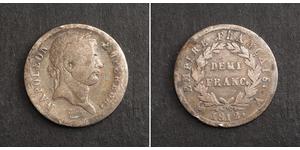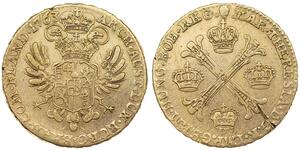(Vendida por $152.0)
1503, Vitican, Pope Alexander VI (Rodrigo Borgia). Silver Grosso Coin. VF-
Mint Place: Rome
Denomination: Grosso
Mint Period: 1492-1503
Condition: Lightly clipped, otherwisee VF.
Diameter: 23mm
Material: Silver
Weight: 2.45gm
Obverse: Standing togate figures of St Peter & St. Paul.
Legend: S PAVLUS ° - ° S ° - ° PETRVS / ROMA
Reverse: Papal tiara and crossed keys above octagonal coat-of-arms.
Legend: ALEXANDER ° - ° VI PONT MAX
Alexander VI was known for his patronage of the arts, and in his days a new architectural era was initiated in Rome with the coming of Bramante. Raphael, Michelangelo and Pinturicchio all worked for him. He commissioned Pinturicchio to lavishly paint a suite of rooms in the Apostolic Palace in the Vatican, which are today known as the Borgia Apartment.
In addition to the arts, Alexander VI also encouraged the development of education. In 1495, he issued a papal bull at the request of William Elphinstone, Bishop of Aberdeen, and King James IV of Scotland, founding King's College, Aberdeen. King's College now forms an integral element of the University of Aberdeen.
Alexander VI, allegedly a marrano according to papal rival Giuliano della Rovere, distinguished himself by his relatively benign treatment of Jews. After the 1492 expulsion of Jews from Spain, some 9,000 impoverished Iberian Jews arrived at the borders of the Papal States. Alexander welcomed them into Rome, declaring that they were "permitted to lead their life, free from interference from Christians, to continue in their own rites, to gain wealth, and to enjoy many other privileges." He similarly allowed the immigration of Jews expelled from Portugal in 1497 and from Provence in 1498.
It has been noted that the alleged misdeeds of Alexander VI are similar in nature to those of other Renaissance princes, with the one exception being his position in the Church. As De Maistre said in his work Du Pape, "The latter are forgiven nothing, because everything is expected from them, wherefore the vices lightly passed over in a Louis XIV become most offensive and scandalous in an Alexander VI."
Authenticity unconditionally guaraneed.
Pope Alexander VI (Spanish: Alejandro VI, or Alexander Sextus), born Roderic Llançol i de Borja (Spanish: Rodrigo Lanzol; 1 January 1431 – 18 August 1503) was pope (Bishop of Rome) from 1492 until his death in 1503. He is one of the most controversial of the Renaissance popes, and his Italianized surname Borgia became a byword for libertinism and nepotism, which are traditionally considered as characterizing his papacy. However, his reputation is mostly drawn from his enemies, the Italian prelates and barons whose power he subverted. Two of Alexander's successors, Sixtus V and Urban VIII, described him as one of the most outstanding popes since St. Peter. His reputation rests more on his considerable skills as a diplomat, politician and civil administrator rather than as a pastor, although regarding the latter he was no more or less effective than any of the other renaissance pontiffs.

8 Maravedi Kingdom of Spain (1814 - 1873 ...
grupo tiene 6 monedas / 6 precios
Add coin to this group
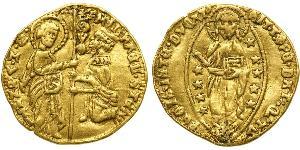
1 Ducat Estados Pontificios (752-1870) Oro
grupo tiene 30 monedas / 26 precios
Add coin to this group

1 Gold Shield Sacro Imperio Romano (962- ...
grupo tiene 2 monedas / 1 precios
Add coin to this group
1/2 Franc Primer Imperio francés (1804-1814) Plata Napoleón ...
grupo tiene 15 monedas / 14 precios
⇑
1/2 Kronenthaler Países Bajos Plata
grupo tiene 9 monedas / 8 precios
⇑

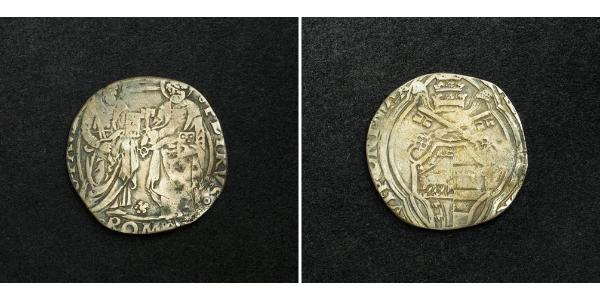





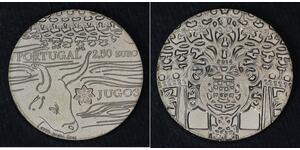
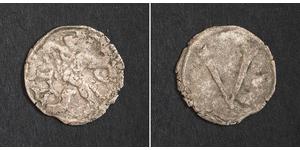
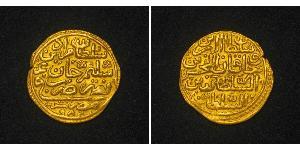
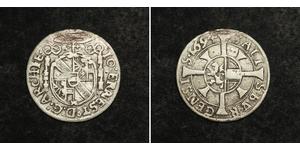

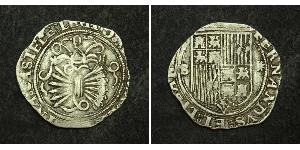
-300-150-e24KbzbiOVkAAAFL68Sjlth6.jpg)
